Post
A catch
Save a catch to start your fishing logbook. You will be able to to share it with the community if yo want!
A fishing trip
Post an ad to go fishing with other fishermen
Save a catch to start your fishing logbook. You will be able to to share it with the community if yo want!
Post an ad to go fishing with other fishermen
Share a thought, a question with the community
My favorite cities
×Join our 399 fishermen in Hogsthorpe in Lincolnshire. The fishing forecast is currently 3.3. The most caught fishes here are the common skate, the thornback ray, the turbot fish and the cod fish. Come try the most famous fishing techniques like the trolling for squid, fishing eel in surfcasting, trolling or trolling for mahi mahi.
Our fishing forecast of Hogsthorpe indicates the best time to go fishing in this city.
The Common Skate
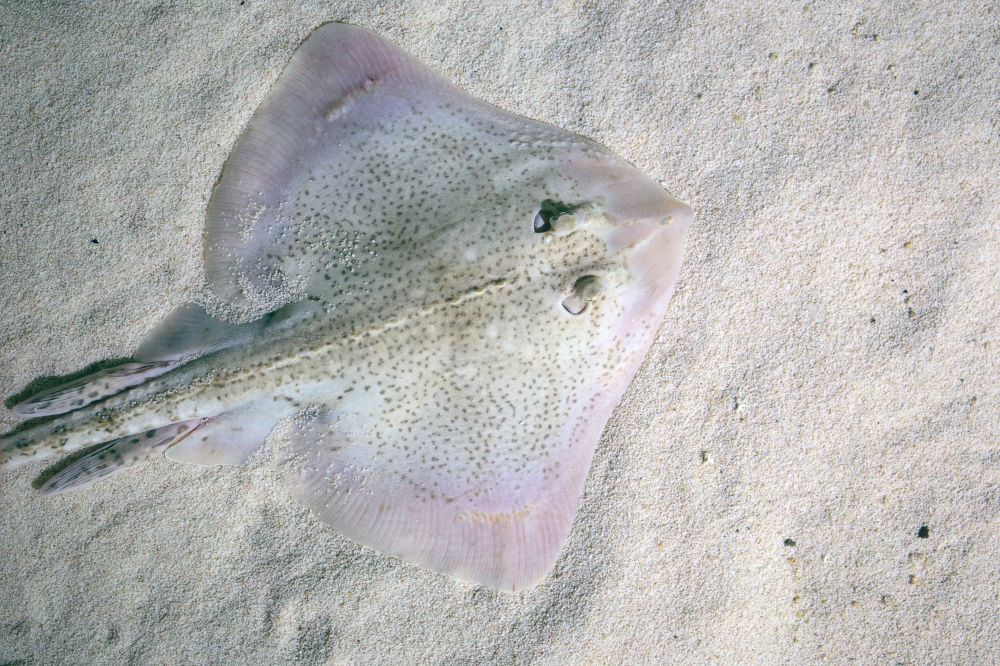
The Common Skate belongs to the Rajidae family. Its average size is 2.85 m for 110 kg of weight. It has a lifespan of 100 years. It breeds in spring to summer. The female can lay up to 40 eggs. They are considered as threatened species by the IUCN or International Union for Conservation of Nature. The Common Skate has a pointed snout and rhombic shape, with a row of spines along the tail. The upper surface is colored olive-grey to brown with dark or white spot, and the bottom is lighter blue-grey.
The Common Skate is a famous fish you can catch in Hogsthorpe.The Thornback Ray
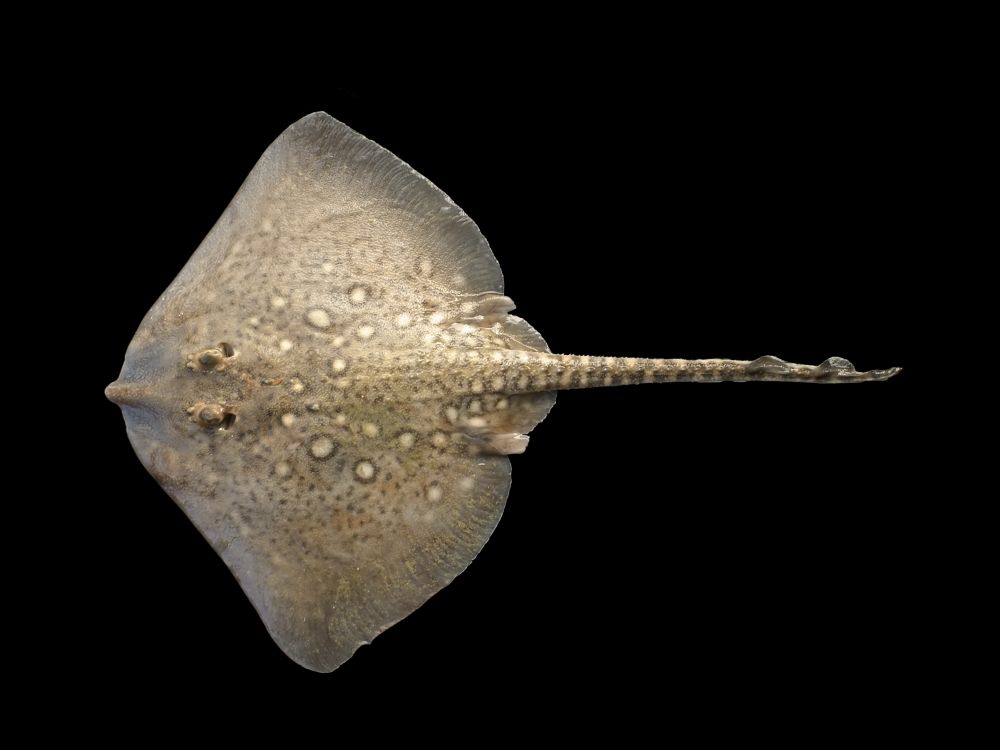
The Thornback Ray belongs to the Rajidae family. The size of this line can reach 1.20 m long for females, 70 cm for males, and 60 cm wide. Its lifespan is estimated at about fifteen years. It reproduces in the spring. The female lays between 70 and 140 young each year. It can be fished all year round. The looped line has the flattened shape of a narrow, diamond-shaped disc, sometimes wavy at the back. The pectoral fins are large, triangular in shape. They are welded to the head and to the whole body. The tail is long and thin, with a triangular pelvic fin on either side. The snout and rostrum are short and pointed. The eyes are close together, in front of the spiracles. The color of its back is greyish or light brown, sometimes solid, but usually marked by dark spots assembled or in sinuous lines. This drawing is completed with large yellowish, irregular spots. These are then surrounded by black in young people. An adult individual may also be adorned with grey-bordered eye-spots. The belly is whitish, underlined with grey on the periphery. The mouth and 2 series of 5 gill slits are located on the ventral side. The upper jaw is armed with powerful teeth, pointed in males and flattened in females. Finally, the tail is adorned with a series of dark or light, uneven rings. The skin is rough. In adults, the dorsal surface of the disc includes a few large curls (curved horny spines with an oval base) arranged irregularly. The young have a very pronounced median line, up to the t
The Thornback Ray is a famous fish you can catch in Hogsthorpe.The Turbot Fish
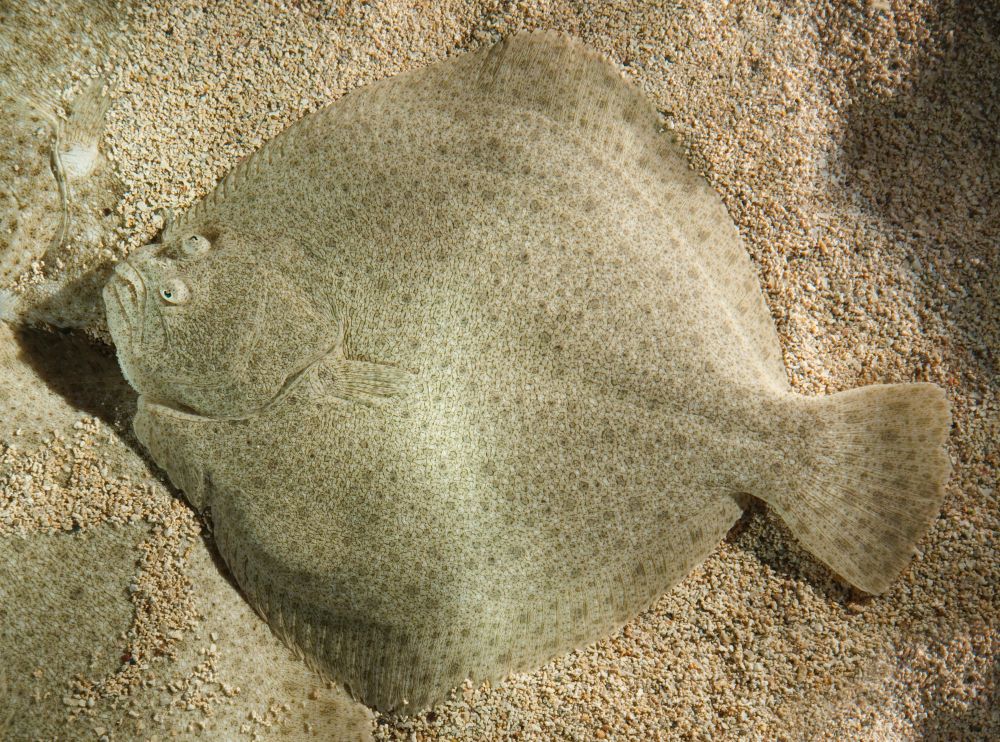
The turbot fish belongs to the Scophthalmidae family. When mature, the average size of the turbot is 30 to 60 cm. In general, males are smaller (35 cm) than females (42 cm). Some individuals can reach a maximum height of 1 m. An adult turbot weighs an average of 6 kg. Exceptionally, some specimens can weigh up to 25 kg. This fish has a long lifespan, the male can live up to 20 years while the female, up to 25 years The breeding period is between February and April. The female can lay up to 3 million eggs. Turbot is caught from January to May. The Turbot is a flatfish, left-handed or senestral, i.e. it rests on its right side (bottom side, blind) and has its left side facing upwards (top side). The origin of the dorsal fin is in front of the eye and its first rays are unbranched. The upper surface is covered with scattered bone tubers (transformed scales). This feature gives it its common name of studded. The eyes are relatively far apart (the distance between them is greater than the diameter of one eye). The lateral line is very curved at the pectoral fin. Like most flatfish, the livery is of variable color, in homochrome with the bottom. It can have many round white to black spots.
The Turbot Fish is a famous fish you can catch in Hogsthorpe.The Cod fish
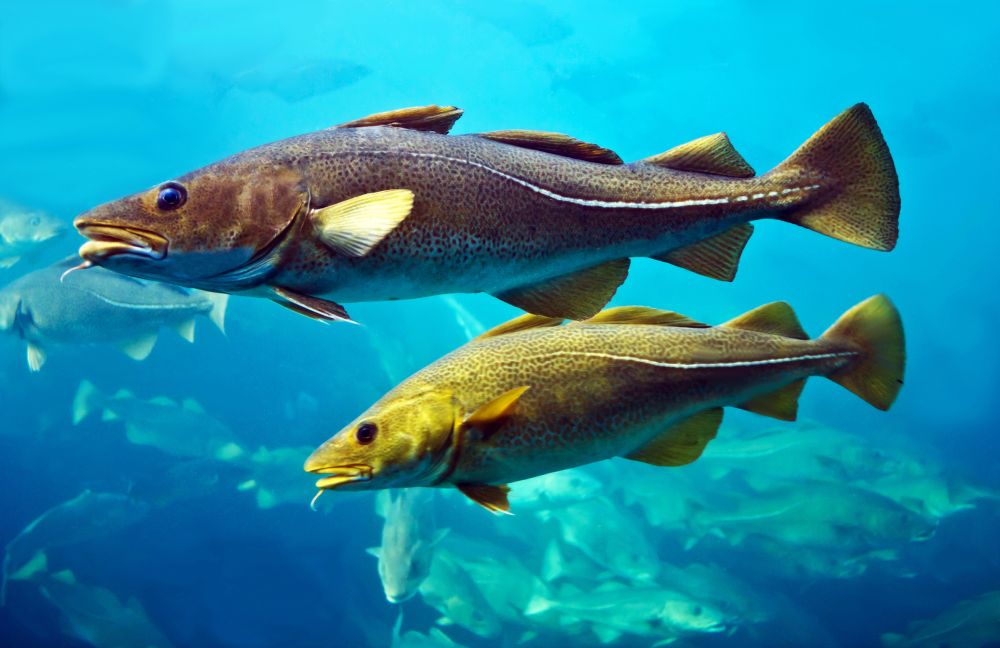
The Cod fish belongs to the Gadidae family. The Cod fish measure between 50 and 90 cm on average but can reach 1.80 metres for 40 kg and a maximum weight of 95.5 kg in some specimens. It can live up to 25 years. It reproduces from February to April. The female can lay 500,000 eggs. It can be fished all year round but productivity is better in March, April and October, November. Its elongated body is covered with small scales. The muzzle is relatively elongated, slightly prominent, conical and obtuse. A large mouth with the posterior edge reaching one third of the eye. There are many small teeth in each jaw. Presence of a barbel under the jaw. It has three dorsal fins and two anal fins. The pale lateral line is curved in the first 2/5 of the body. The body cavity is lined with a grey or silvery membrane and has small black, brown or red spots on the sides and back. The color varies according to the habitat and diet.
The Cod fish is a famous fish you can catch in Hogsthorpe.The Smoothhound fish
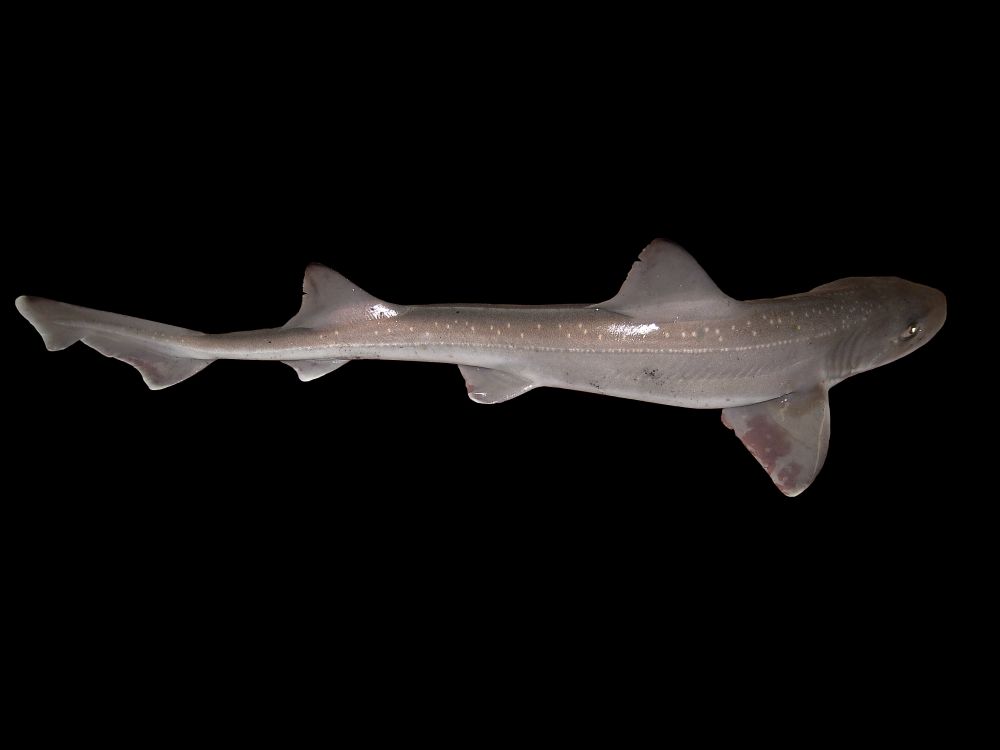
The Smoothhound fish belongs to the Triakidae family. In exceptional cases, the emissole can reach a length of 160 cm, but it is common between 60 and 120 cm. He can live for about twenty years. Breeding takes place between June and March. The female can give birth to 10 or 20 young. It is mainly fished in the summer. The Smoothhound fish is a cartilaginous fish (the skeleton is composed of cartilage elements) of medium size. The body is elongated and tapered. The head is compressed in the upper part and the muzzle is long and rounded. The mouth, located at the bottom, is oblique and equipped with a series of small and low teeth, which may be less rounded in young people. The nostrils, in a ventral position, have a large opening, and are closer to the mouth than to the top of the muzzle. The eyes are small, round in young subjects, and horizontal oblong pupil (typical of deep-sea species) in adults. On the muzzle, there are sensory organs for depth detection (hydrostatic). Next to the terminal part of the head, there are five gill cracks. A subtle but distinct fold of the skin is found along the back, from the tail to the gill cracks. The skin (shagreen skin) is almost smooth. The dorsal fins are two, triangular in shape, the second is slightly smaller than the first. The pectoral muscles have a rounded and slightly concave inner top. The caudal fin has two non-symmetrical lobes (the upper part more developed). The anal fin is present. The colouring of the back and sides ar
The Smoothhound fish is a famous fish you can catch in Hogsthorpe.Our fishing forecast of Hogsthorpe indicates the best time to go fishing in this city.
Our fishing forecast of Hogsthorpe indicates the best time to go fishing in this city.
Our fishing forecast of Hogsthorpe indicates the best time to go fishing in this city.
